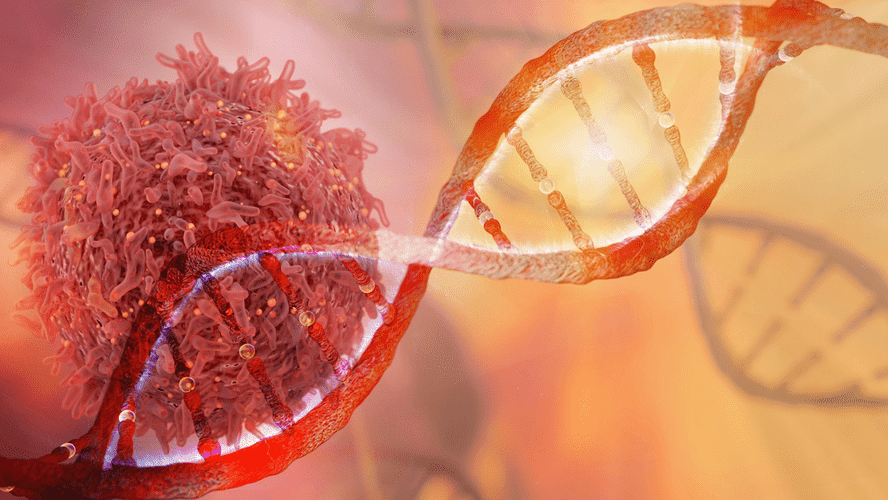Talletusvapaat kannustimet kaikki nettikasinot yhdysvaltalaisten ammattilaisten saamiseksi
January 25, 2022Продажа Земли Сельскохозяйственного Назначения Через Земельные Торги На Prozorro
January 26, 2022Content
A healthy liver will eliminate one normal-sized alcoholic beverage in about one hour. After a night of heavy drinking your BAC may still be over the legal driving limit the next morning.

Upon consumption, alcohol enters the stomach and intestines. Treatment for addiction takes many forms and depends on the needs of the individual. In accordance with the American Society of Addiction Medicine, we offer information on outcome-oriented treatment that adheres to an established continuum of care. In this section, you will find information and resources related to evidence-based treatment models, counseling and therapy and payment and insurance options. As you get older, your liver works more slowly, so it takes longer to excrete alcohol. Many aging adults also take medication that can affect liver function, slowing the process further. Like many other drugs, alcohol can be detected with a hair follicle drug test for up to 90 days.
By sharing your phone number, you agree to receive marketing text messages from at the number provided, including messages sent by autodialer. Join The Myers Way® movement that has helped over 1.2 MILLION people in 120+ countries. When you sign up, you’ll receive a full-color, 59-page eBook filled with delicious, simple recipes that will tempt your taste buds. My Coconut Charcoal is the perfect supplement to help bind and chelate toxins and other unwanted compounds out of the body. Weakened immune system, which increases the risk of developing an autoimmune disease or getting sick. Dr. Myers retired from her functional medicine clinic, Austin UltraHealth, where she served thousands of patients, to empower those who were failed by conventional medicine. She’s a 2x New York Times bestselling author, and the founder and CEO of the health & lifestyle e-commerce brand, Amy Myers MD®.
Urine Tests: Between 12 Hours To 24 Hours Or 72 Hours
After you’ve drained your glass, your body immediately works to get rid of it. Chances are you’ll still be feeling it for about an hour, maybe even 2 hours depending on how your body metabolizes alcohol. Alcohol is transported throughout the body through the blood, and as a result there are many possible tests to detect its presence. To see how long various tests will detect alcohol, please consult the table below. Age- Aged persons might have less digestion rate than younger people, so they might need a longer time to break down alcohol. According to NSDUH, 85.6% of people above 18 in the United States have consumed alcohol at some point in their lifetime, with 51.6% of them being women.
Poisoning: Signs, Symptoms, and First Aid Treatment – Verywell Health
Poisoning: Signs, Symptoms, and First Aid Treatment.
Posted: Thu, 17 Mar 2022 17:25:33 GMT [source]
Then, acetaldehyde is further broken down to another less active byproduct called acetate. From there, the acetate is broken down into water and carbon dioxide for easy elimination. If this happens too often, damage to the body’s brain and tissues can develop. It’s important to know that no amount of alcohol is considered safe to drink if you’re breastfeeding. But according to the Centers for Disease Control and Prevention , having just one drink and taking the right precautions shouldn’t harm your baby. So after one drink, your BAC should be back below the “drunk” threshold about 60 minutes after you drain your glass. But again, this is a generalization and could be different depending on the person and situation.
Although eating before a night of drinking will slow down alcohol absorption, it will not keep you sober as you continue to drink. Eating after a few drinks will not reduce your level of intoxication because food does not have an effect on alcohol that has already been absorbed into the bloodstream. Urine tests can detect alcohol for between 12 hours and 24 hours. This length of time usually depends on how recently and how much you drank. Breathalyzers can detect alcohol in your breath up to 24 hours after drinking.
How Long Do The Effects Of Alcohol Last?
Women have less dehydrogenase, which is a liver enzyme that breaks down alcohol, than men. Once the alcohol gets into your bloodstream, it starts flowing to all of your organs — reaching your brain in around 90 seconds. Genetics – Some individuals’ genetics enable them to process alcohol faster or cause them to process it slower. A primary example is many East Asian populations, who process alcohol differently than most others, leading to facial flushing and other effects.
- Within this essential breaking down process, ethanol is converted into acetaldehyde, an organic compound that is toxic to the body.
- For example, in a suspected DUI, an EtG test may register a positive even though the person drank alcohol the day before and isn’t actually intoxicated anymore.
- According to the Centers for Disease Control and Prevention , a “standard” drink by these measurements has around 0.6 ounces of alcohol.
- For men, this is usually a rate of about one standard drink per hour.
You need to consider not only what you drink, but also how much you have eaten, what you have eaten, your gender, your weight, and any medications you may have taken. The less you weigh, the higher your alcohol blood content will be after one serving. After two servings of alcohol, a 150lb man will have an alcohol blood content of approximately .058, while a man of 225lbs will have a BAC of .039.
Medical Reviewer:
To estimate of the effects of alcohol addiction on a person’s long-term physical health, check out our online calculator. Breath tests for alcohol can detect alcohol within a shorter time frame. Any number above 0.02 is considered unsafe for driving or other safety-based tasks. It may take an hour to metabolize a drink, but it takes approximately thirty minutes before you feel alcohol’s effects. Drinking more than one drink every 30 minutes means you are probably drinking too much, too fast. Slow yourself down, and if you find yourself feeling thirsty before those 30 minutes have passed, try a glass of water first. The so-called liver detox program includes several steps that involve fasting, a restricted diet, or drinking certain juices or liquids for several days.

Counseling and a few medications can be effective for alcoholism treatment. Alcohol addiction treatment can help your liver health by helping you detoxify from alcohol in a safe setting while keeping you as comfortable as possible. Professional health monitoring is provided during the detox period to ensure your safety throughout alcohol withdrawal. Symptoms of the third phase of alcohol withdrawal are the most severe and can even be life-threatening in extreme situations. For example, in cases of extreme alcohol abuse, liver detox can confuse the liver and result in delirium tremens. Liver cells die every time your liver filters alcohol, but a healthy liver is robust and able to renew itself.
Saliva And Breathalyzer Tests: Between 12
If you are excessively consuming alcohol, you may vomit and lose even more important fluids. Even mild consumption of alcohol means more than frequent trips to the bathroom and thirst.

For example, one beer is 12 fluid ounces and it contains 5% alcohol. One shot of rum, vodka or gin at 40% alcohol is considered one drink. Speech may be slurred, reactions times slowed, coordination and walking impaired, and judgment compromised while under the influence of alcohol. Women who drink their normal amount Sobriety of alcohol prior to menstruation will experience higher BACs than they otherwise would. Ninety percent of alcohol consumed passes through the liver. The organ breaks down the alcohol into acetaldehyde, a chemical the body recognizes as toxic. Acetaldehyde metabolizes into carbon dioxide, which the body can eliminate.
If you are concerned about passing a test, your best bet is to detox and stop drinking at least 80 hours before the test. Alcohol is a toxin that must be neutralized or eliminated from the body. Ten percent of alcohol is eliminated through sweat, breath, and urine. All unique content created by the Addiction Group team is sourced from current scientific research and fact-checked by an addiction counseling expert before publication. However, the information provided by Addiction Group is not a substitute for professional treatment advice. Support groups are peer-led groups that help people stay sober. They can be a first step in overcoming alcoholism or a component of an aftercare plan.
How Long Is Alcohol Detectable In Your Body?
Light beer has a reputation for being better for your health than a regular brew, but is that really the case? Having more than that overloads your system with more booze than it can process at once, which is what ultimately causes you to feel drunk and sends your BAC over the legal limit. Just keep in mind that drinking more than that can be bad for your baby’s growth and development, and can hurt your judgment.

Finding out how long alcohol can stay in your system is a common question. After all, you do not want to risk trying to drive if there is still any alcohol left in your system.
” self-assessment below if you think you or someone you love might be struggling with an alcohol use disorder . The evaluation consists of 11 yes or no questions that are intended to be used as an informational tool to assess the severity and probability of an AUD. The test is free, confidential, and no personal information is needed to receive the result. Fill in our online insurance verification form below to find out if your insurance provider may be able to cover the cost of treatment.

For example, senior citizens are particularly vulnerable to alcohol because of age-related changes to their bodies. Older people experience a decrease in body water, loss of muscle tissue and decreased metabolism — all of which affects alcohol absorption. If someone with alcohol problems also battles depression, their symptoms may worsen when drinking. Similarly, people with anxiety who drink heavily may experience stressful emotions that can cause a change in the stomach’s enzymes, which affects how a person breaks down alcohol. The recovery process doesn’t end after 90 days of treatment. The transition back to life outside of rehab is fraught with the potential for relapse.
For example, if you’re being tested in a medical setting for intoxication, doctors are more likely to take a blood sample. In a legal setting, such as after an accident or a suspected DUI, you’re likely to be given a breath test. how to flush alcohol out of your system He graduated with a degree in journalism from East Carolina University and began his professional writing career in 2011. Matt covers the latest drug trends and shares inspirational stories of people who have overcome addiction.

